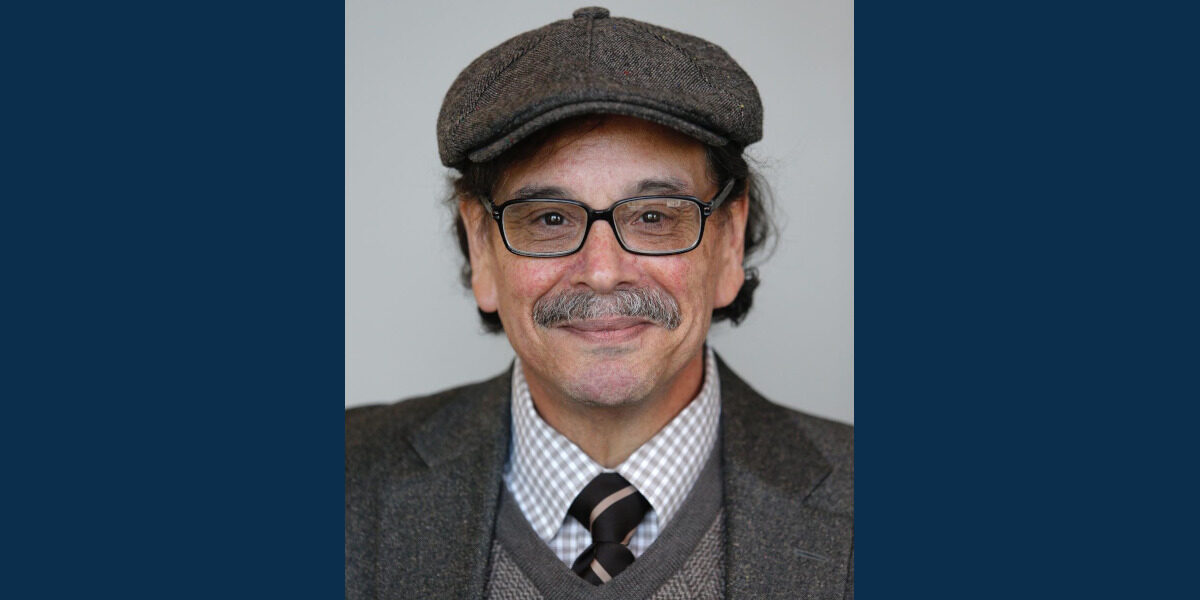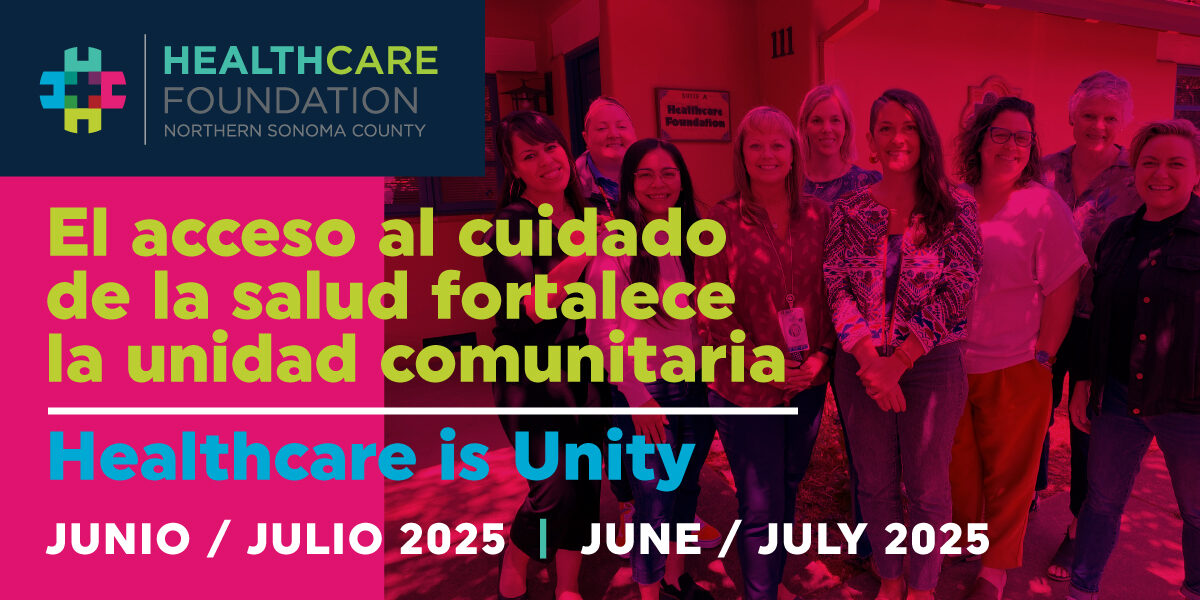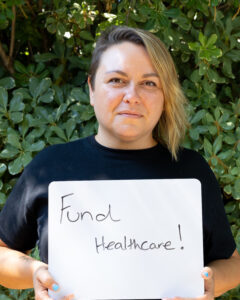

Wetzel Community Leadership Award: Herman J. Hernandez
Meet Herman J. Hernandez, the recipient of this year's Wetzel Community Leadership Award.
Herman J. Hernandez is a longtime Guerneville resident, broker and owner of Hernandez Realty Co., and a well-known community champion and bridge-builder. As a founding member and the board president of Los Cien—a Latinx leadership organization and Sonoma County’s leading Latinx advocacy group that convenes public and candidate forums on pressing issues like housing and mental health—Herman has been instrumental in raising the representation and involvement of Latinx residents in the political and policy decisions that impact their lives. As someone who is a trailblazer in his own right, Herman models the kind of civic engagement, inclusiveness, and pride Los Cien supports and promotes throughout Sonoma County. The Healthcare Foundation is extremely pleased to recognize his decades of service with the 2022 Wetzel Community Leadership Award.
Herman was born in San Francisco and grew up in the Mission District, the only son and third child of immigrant parents. His father had come from El Salvador in 1937 and his mother, who was Jewish, had fled pre-war Germany around the same time. His parents met while attending English classes at Golden Gate College and spent the war years together in El Salvador, where Herman’s two sisters were born, before returning to San Francisco in 1946. By the 1950s, Herman’s father, the first Latino real estate broker in San Francisco, had managed to buy some modest dwellings on a little land in Guerneville, a foothold he would eventually expand and manage with his son. Today, Herman resides on that same property in Guerneville, where he has raised his own family and been in business for over 50 years.
Herman has been previously recognized for his outstanding contributions to his community and Sonoma County more generally, including with a Citizen of the Year award from the Santa Rosa Metro Chamber of Commerce in 2018, and the North Bay Spirit Award from the Press Democrat in 2019.
The following recent conversation with Herman J. Hernandez has been lightly edited for length and clarity.
You established yourself in Guerneville after high school. How did you come to live in Guerneville?
I was born in San Francisco, raised in the Mission District, and started coming up here with the family. My two older sisters and me. In 1947-48, a friend of my dad’s mentioned Guerneville, the Russian River, and they started staying at Johnson’s Beach. Then, in 1951, my dad bought a little cabin. We used to come up here on the weekends on a regular basis year-round. We’d get out of school on a Friday afternoon and by six o’clock we were headed up here. All three of us learned how to drive by driving back to San Francisco on Sunday afternoons.
My neighborhood in the Mission District had started to get a little bit difficult. I was having to go through a gang to get into the park and into the facility to either play basketball or baseball. I knew everybody but it could still get a little bit complicated. So when I graduated from Sacred Heart High School in 1970, I came out to what we would call the ranch and lived in the living room. The house was about 100 years old. We did have a fireplace. I remember I went out to cut a lot of firewood. All I could do was heat up the living room, but I couldn’t heat up the rest of the house. But I thought, you know what, I’ve got a chance to leave the Mission District and get to Guerneville. And since my dad was in the real estate business, and I’d saved just a little bit of money, we started buying property. We started renting it, and I learned how to manage properties. In 1973, I got my real estate license. I worked with my dad right up until 1977, when he got ill and he passed away, which pushed me so I became a real estate broker of Hernandez Realty in 1978. My dad started the business in the Mission District in 1953, one of the first Latino real estate brokers and insurance brokers in San Francisco. I’ve been in the business for 50 years, and I’ve lived here in Guerneville for 52.
In 1979, I started going to a central part of Mexico, where my brother-in-law had some family—León, Guanajuato—and I eventually met my wife there in 1981. We got married in 1982. This December will be 40 years that we’ve been married. We’ve raised two children, Herman Gabriel and Daniela Maria. Today, my daughter Daniela is looking to follow the tradition as a third-generation realtor.
Were there other Latino-owned businesses in Guerneville at that time?
We were the first Latino business in Guerneville in 1973. My dad and I were the first Latino realtors in Sonoma County that I’m aware of.
“I’m not a person that’s in-your-face. I come from a real estate broker background all my life—you’re negotiating. Here [through Los Cien] we are negotiating what really is right for all. . . . What we do is we convene, we bring people together. We are a connector.”
Herman J. Hernandez, Wetzel Community Leadership Award Recipient
How did community service first enter your life?
In 1973, I got into Rotary. I was the first Latino in our Guerneville Rotary Club. It was a tremendous experience. Rotary taught me quite a bit about community service. It just added to my Catholic school education—the brothers [at Sacred Heart] really pushed for community service. Rotary elevated me. It taught me how to be involved. At that time, in the 1970s, Rotary was a large club. It was really the who’s who of our community. So I was totally excited when I joined and was given the opportunity to know what it was to serve the overall community. In my realtor role, I also got on the governmental relations committee. So I had a taste of that, too. That was the springboard, along with the foundation in high school. It helped me understand that if I want to engage the community and get to know the community I need to get involved in something.
How did this lead to the founding of Los Cien?
I grew up in an era where I was constantly reminded that I could not speak Spanish in school. They’d tell you either politely or with a slap on the side of the head. Spanish and the culture of our family were in the household, and stayed there. I lived a good portion of my life, as I was building my business and raising my kids, basically in the mainstream. If you were to ask me 20 years ago, “How’s the Latino community?” I probably would have told you it was fine because my finger was not on the pulse.
But from serving on Rotary, serving on the Chamber [of Commerce], serving on the Park & Rec, serving my Catholic church, volunteering at the high school, coaching Little League, and coaching CYO, I eventually started navigating a little bit toward Santa Rosa. There were a couple of individuals there who came into the real estate business who were Latino, and I became friends with them. One of them specifically was involved with a small group in Santa Rosa that had just gotten together over an unfortunate situation—there were three Latino candidates for a city council position back in the early 2000s. They felt they had a great chance. Any of those three could have been the first Latino or Latina city council member in the history of Santa Rosa. The existing city council appointed a white woman. They were very upset about it and created this little group. I started going to that little group.
They got a grant to do a survey of the Roseland District in Santa Rosa and do voter registration. They registered 650 new voters and did the survey. I got involved halfway into that. I looked at the results of the survey, and some things specifically drew my attention: the apathy about a future, because your political leaders don’t do anything, they don’t hear us; and the lack of involvement [that results]. When I read all that, it hit me. The vision I saw was being able to support each other and encourage each other; to know that if we step forward and get involved, we can believe we can do it. I brought the vision to the group, and they thought it was fantastic. At that time we were called the Sonoma County Latino Leaders. I invited ten individuals to the back room of Mary’s Pizza on Fourth Street, which is now closed. From that point we started talking to people running for office—sheriff, district attorney, senator, assembly member—we met with all of these individuals in the backroom. No advertising. Within nine months, we were exceeding the limits of the fire marshal—it was growing. What I realized is that the vision that I saw, that we really needed to meet and step forward together, was shared by many others. Everybody was starting to bring another person. I had to move from Mary’s Pizza to Sam’s backroom, which could fit up to 60. Within three months we outgrew that. Then we moved to the Flamingo. Within two months we outgrew the room at the Flamingo and went into half a ballroom, I think it was 135 it accommodated. Within four months we were taking the whole ballroom. At the same time, I saw there was somebody missing at the table, it was basically the non-Latino community. We celebrated our fourth year and at that point I made sure it was open to everybody. From that moment we doubled and tripled.
Limited access and limited privilege, that’s what I grew up with; that’s what I accepted and what I lived. I didn’t start thinking about it until the day that I was invited to that breakfast of the group from Santa Rosa, to just listen to what they had to say. I’m not a person that’s in-your-face. I come from a real estate broker background all my life—you’re negotiating. Here [through Los Cien] we are negotiating what really is right for all. With the help of a steering committee, and the original board of directors, we became a nonprofit. What we do is we convene, we bring people together. We are a connector.
What Los Cien also strives to do is motivate others. It’s so important, for me, to be able to sit and have a tamale or a taco or a pupusa and talk to people in the community, letting them know that people like me can only do so much. We need them, too. In between working hard to provide for their family, we need people to be involved.

November 3, 2022 | 8:30-10:00 AM
Dry Creek Kitchen
317 Healdsburg Ave
Healdsburg, CA 95448
Limited Tickets Available – Purchase Here
Join us for a celebratory breakfast event to honor this year’s Wetzel Community Leadership Award recipient Herman J. Hernandez and Spirit of Wetzel Award recipient Bernice Espinoza.
Enjoy your choice of a plated breakfast at Dry Creek Kitchen, where iconic chef Charlie Palmer brings his signature style to the bounty of Sonoma County. The morning will include honoree recognition and a brief program.
Each year, the Healthcare Foundation presents the Wetzel Awards to highlight individuals who demonstrate a commitment to improving health and health equity in our community. The Wetzel Community Leadership Award and Spirit of Wetzel Award are named for the late Maggie and Harry Wetzel, longtime friends of the Healthcare Foundation and generous members of our community. The memory of the Wetzels lives on through the award honorees who exemplify humanitarian leadership values in action on a daily basis.
Thank You to Our Sponsors
Community Health Builder

Community Health Supporters
Costeaux French Bakery
Exchange Bank, Healdsburg
Healdsburg Running Company

Related News + Stories
Invest in Our Community
Your support is vital to our collective vision of eliminating health inequities in northern Sonoma County.
Donate



